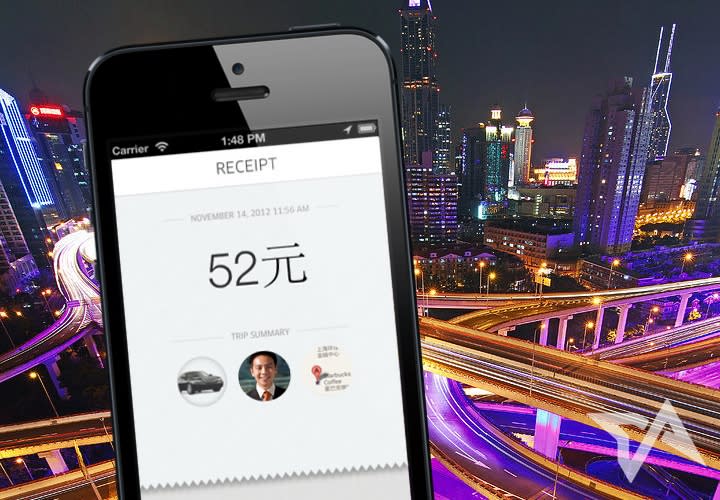5 Reasons China is Crying Out For Uber

Bans, new regulations, public-sector challengers. China’s fledgling taxi app startups have had a hell of a lot thrown at them in the past few months. But bad news for those apps is a good omen for one American company - Uber. Now that Uber is pushing into Asia with a presence in three cities so far, here are five reasons why China is crying out for Uber as an extension to - or partial replacement of - such taxi finder apps.
1. Demand is high even at raised prices
China’s taxi finder apps - such as Didi Dache, which we road-tested recently - will undoubtedly survive the recent upheavals. But it looks like authorities will clamp down on the way those apps let prospective passengers ‘bid’ a sum of money to come get picked up. It’s pretty much a bribe [1] where only people who bid the maximum of RMB 20 ($3.20) - which is nearly double the base cab fare - will get picked up. But that willingness to pay extra is good news for Uber’s chances in China.
Even if all taxi finder apps are slapped down and those extra fees are capped at just $0.80 - as just happened in Beijing - it has been demonstrated there’s a clear demand for a convenient system of getting a ride. Uber works with private car companies to serve customers via its smartphone apps, and since it doesn’t involve the highly-regulated cab industries, it operates more freely and can charge any rate.
Even if Uber’s minimum fare in Shanghai is the same as it is now in Taiwan - $7.60 - that’s on par with what it would cost to take a cab in mainland China via a taxi finder app where the fare comes to RMB 25 and the RMB 20 bribe… er, I mean ‘bid’… has to be added onto it. Admittedly, Uber has a higher start price and costs more over a distance, but Uber now looks like a fair deal compared to the top-level fee imposed by location-based taxi apps.
2. Not enough taxis
Why are these taxi apps flourishing in the first place? Because most Chinese cities suffer chronic cab shortages at peak times and in some high-demand areas of China’s cities, such as around business districts and shopping malls.
3. Top Chinese cities have the right clientele
Uber launched in Taipei at the end of June.
Just like Singapore, Taipei, and Seoul (where Uber operates already), China’s top cities are business hubs with comparable wage/wealth levels to support this kind of premium service.
4. Smartphone and 3G usage very widespread
3G and a smartphone are pretty much mandated for quick and easy usage of such apps. And China has over 300 million 3G subscribers.
5. Some cities are clamping down on car ownership
Beijing already has strict limitations - via a license plate lottery that only issued 240,000 new ones in 2011 - on new car registrations to try curb its traffic saturation problems. Shanghai still issues plates freely, but the auction system regularly sees plates selling for over $12,000, which is greater than the cost of some cars. With the subways of Shanghai and Beijing already at bursting point on the main lines, taxis hard to find, and many thwarted from car ownership, private car companies can soak up the demand from urban professionals. But good luck getting through the traffic.
But… Uber’s biggest Chinese rival is already massive
But we’re talking about China here, where local tech companies move fast and hit hard. So there’s inevitably already a smartphone-based service for private car pick-ups in the form of Yongche. It now covers 38 cities across China - after adding nine smaller cities, like Haerbin and Wenzhou, last month - so that it’s available in at least one city in every one of China’s more developed provinces. Yongche claims to have one million users right now. Yongche has secured a couple of major rounds of funding to boost its ongoing expansion.
That leaves Uber with a lot of catching up to do, though I suspect the company would prefer to focus on a handful of main cities to begin with.
If you've got some points for or against Uber moving into China, hit the comments section below.
(Editing by Anh-Minh Do)
Note that the taxi driver gets to keep all of that extra fee. The taxi finder startups instead monetize via 3G data package deals with mobile telcos. ↩
The post 5 Reasons China is Crying Out For Uber appeared first on Tech in Asia.




